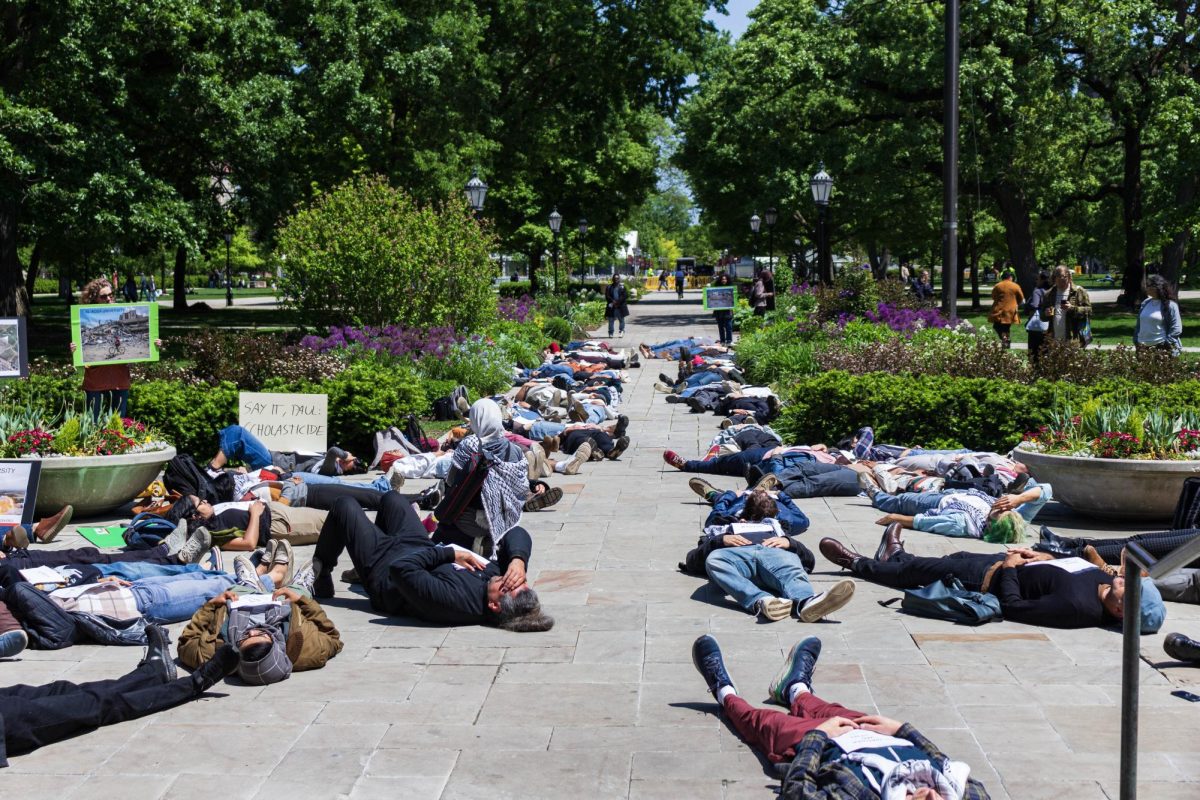UChicago professors Monika Nalepa and Andrew Eggers were announced as part of the incoming editorial team of the American Political Science Review (APSR) on February 12. Their term will begin on June 1, 2024, and will conclude on May 31, 2028.
“Selection of a new team is a months-long process involving both members of the American Political Science Association (APSA) and its governing body, the APSA Council, who ultimately selects our journals’ editors,” Steven Rathgeb Smith, executive director of American Political Science Association, wrote in an email statement to the Maroon.
Nalepa will serve as co-head editor with John Gerring from the University of Texas at Austin. She helped assemble the group of political scientists who responded to APSR’s call for proposals to edit the journal. A professor in the political science department since 2014, her research focuses on transitional justice in post-Communist Europe. Nalepa received the University’s Faculty Award for Excellence in Graduate Teaching and Mentoring in 2021.
Nalepa’s motivation for taking the position, she said, comes from her passion for writing.
“A lot of people sort of gripe at the onerous task of just editing draft after draft to get it just right. I actually don’t mind it at all. I use it as an opportunity to learn new things about the English language and effective ways of communication,” Nalepa said in an interview with the Maroon.
Eggers has been a professor in the political science department since 2020. His research focuses on electoral politics, and he was selected as an associate editor by Nalepa for his specialty as a methodologist. She thinks his expertise in mathematical modeling and data analytics will add a diverse skill set to the team.
“I always wanted to work with Professor Eggers in some capacity—I was on the search committee that hired him. We have known each other since graduate school, so he was a very natural choice,” Nalepa said.
Eggers added that his motivation for joining the team is based on principles of open science. Open science aims to allow the broadest scope of people to have clear and easy access to the underlying research methods which produce vastly influential publications.
Research published by APSR is the backbone of many foundational political science courses at UChicago, with many political science majors in the College being familiar with the journal. Eggers hopes to engage with the lesser seen elements of the research, asking, “You have a paper, it’s got words, it’s got numbers, but what is behind that?” For him, this means working with the experimental design, hard data, and computer code which goes into research papers.
In addition to looking closely at the methodology that produces the research they review, the team also aims to streamline the complex publication process.
According to Eggers and Nalepa, the board is sent more than 1,000 manuscripts from political scientists around the world each year. If a manuscript is deemed ready for review, APSR will present it to a specialist in the appropriate subfield who they believe can provide meaningful feedback. This feedback can range from edits of minor details to requests for entirely new experiments. From there, the board will decide whether the feedback can be satisfactorily responded to. If it can, they will invite the author to revise and resubmit.
Depending on the speed of the responses between writers and editors and the extent of the feedback, this process can take years. “There is a crisis of peer review. Journals are struggling with everything from finding reviewers that are reliable to getting those reviewers to respond on time,” Nalepa said.
As a part of the proposal, the editorial team had to plan a set of reforms they will institute to enhance the quality and efficiency of the publication.
“We will actually ask fewer reviewers to comment. So, because we feel that our team is so large and has so much expertise, we won’t need that many reviewers,” Nalepa said. Other reforms will include shifting away from print copies and the editorial board committing to take an active part in the process by reviewing a set number of manuscripts a year. The team will also be implementing a system to track how often researchers who frequently submit their work decline to review the work of others.
Reflecting on the role, Eggers shared a sense of obligation to his peers and his field. “When friends of mine have heard that we are joining this team, they say some mix of congratulations and condolences,” he said. “It’s an honor in some ways, but it’s also something you do for the benefit of the field. I want to do something good for the field. After I do this, I can focus on writing my own stuff,” he said.
Nalepa also shared her own excitement for the unique perspective she will gain from the position. “What I’m looking forward to is just seeing what new work is done in political science. There are very few jobs in the discipline that give you that perspective.”














